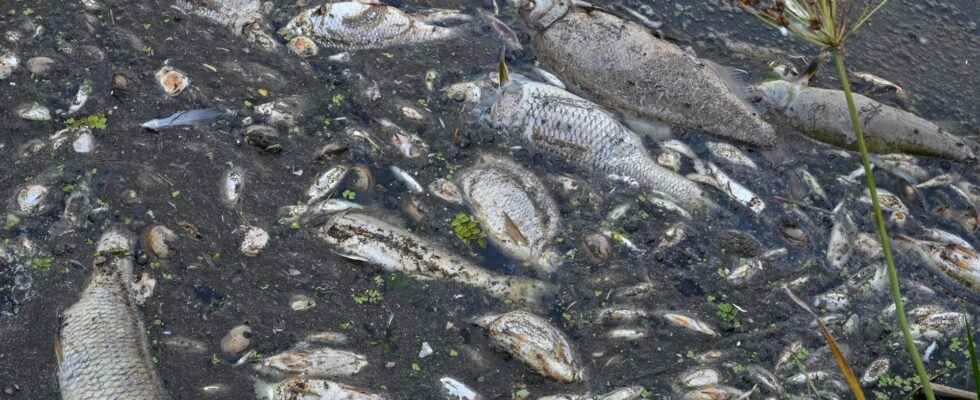Professor Skubała agrees that the controls are not sufficient: »The ecological catastrophe on the Oder has shown that the entire system of environmental and water protection in Poland does not work. Rivers here are the responsibility of the Ministry of Infrastructure. That’s wrong. Rivers are part of nature and as such should fall under the purview of the Ministry of the Environment,” says the biologist. “The government doesn’t see rivers as a complex ecosystem, just a large amount of water useful for the transportation of goods.”
Not only the Oder is in bad condition. According to a report by the Main Inspectorate for Environmental Protection (Główny Inspektorat Ochrony Środowiska, GOŚ), a total of 4585 surface water bodies were assessed as part of diagnostic surveillance from 2014 to 2019, most of them in the Vistula and Odra river basins. Only 50 (1.09 percent) bodies of water achieved a good status, 4535 (98.9 percent) rated the authority as bad. Bad here means that the body of water does not meet one of several parameters – these include not only chemical or physical values, but also biodiversity. Significantly, the GIOŚ inspectors pointed out in their report for 2019 that the planned control was not possible everywhere – because a total of 111 of the water bodies had no or too little water.
Water is scarce in Poland
In fact, Poland is one of the most water-scarce countries in Europe: According to a report by the Heinrich Böll Foundation, the annual average of water resources per capita between 1946 and 2016 in Europe was 5,000 cubic meters of water, while in Poland it was only 1,800 cubic meters. Low river levels caused by drought also mean there is less water to dilute pollutants – a deadly combination.
»Studies show that 97 percent of our rivers are in poor condition. And the situation is even better than in the past, because now there are at least partial controls of municipal and industrial wastewater,” says Professor Skubała. »We’re in the 21st century and we’re still dumping our sewage into the rivers. Ideas like clean industry are just that: ideas.” So the next ecological catastrophe is just a matter of time? Fish deaths due to lack of oxygen have long been observed in summer in other rivers as well; as well as algal blooms, albeit to a lesser extent than in the Oder disaster.
As recently as February, the EU Commission announced that it would take Poland to the Court of Justice of the European Union for non-compliance with the Urban Wastewater Treatment Directive. According to this, in Poland “more than 1000 municipalities did not have sewage systems for the collection of their municipal sewage, which means that the sewage is discharged untreated directly into rivers, lakes or the sea”.
What lessons are now being drawn from the catastrophe? The deputy minister for infrastructure, Marek Gróbarczyk, recently announced that he would introduce a law to revitalize the Oder which, among other things, provides for the acceleration of decision-making processes, investments and financial aid – as well as the construction of barrages to improve the water conditions.
